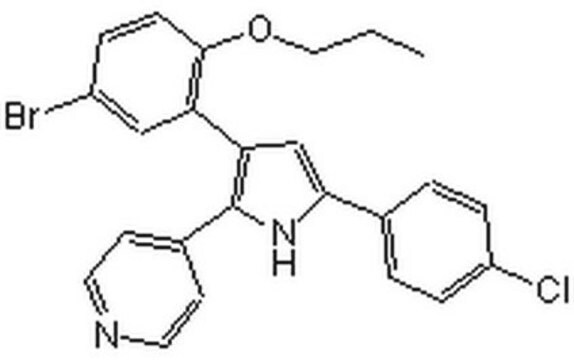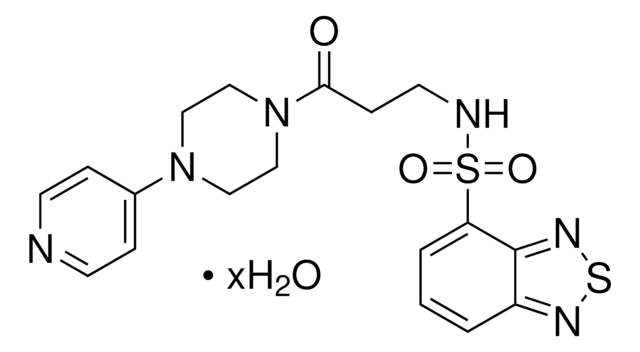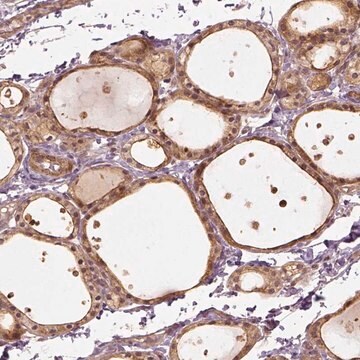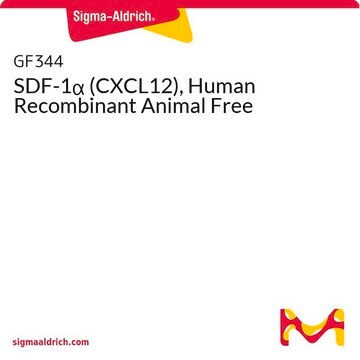L1044
Anti-Leukemia Inhibitory Factor antibody produced in goat
affinity isolated antibody, lyophilized powder
Synonyme(s) :
CDF, D factor, DIA, Emfilermin, LIF, differentiation inhibitory activity
About This Item
Produits recommandés
Source biologique
goat
Niveau de qualité
Conjugué
unconjugated
Forme d'anticorps
affinity isolated antibody
Type de produit anticorps
primary antibodies
Clone
polyclonal
Forme
lyophilized powder
Espèces réactives
mouse
Technique(s)
neutralization: suitable
western blot: 0.1-0.2 μg/mL
Numéro d'accès UniProt
Température de stockage
−20°C
Informations sur le gène
mouse ... Lif(16878)
Vous recherchez des produits similaires ? Visite Guide de comparaison des produits
Description générale
Anti-Leukemia Inhibitory Factor recognizes mouse leukemia inhibitory factor. It shows less than 5% cross-reactivity with recombinant human LIF.
Immunogène
Application
Forme physique
Vous ne trouvez pas le bon produit ?
Essayez notre Outil de sélection de produits.
Produit(s) apparenté(s)
Code de la classe de stockage
13 - Non Combustible Solids
Classe de danger pour l'eau (WGK)
WGK 1
Point d'éclair (°F)
Not applicable
Point d'éclair (°C)
Not applicable
Équipement de protection individuelle
Eyeshields, Gloves, type N95 (US)
Certificats d'analyse (COA)
Recherchez un Certificats d'analyse (COA) en saisissant le numéro de lot du produit. Les numéros de lot figurent sur l'étiquette du produit après les mots "Lot" ou "Batch".
Déjà en possession de ce produit ?
Retrouvez la documentation relative aux produits que vous avez récemment achetés dans la Bibliothèque de documents.
Notre équipe de scientifiques dispose d'une expérience dans tous les secteurs de la recherche, notamment en sciences de la vie, science des matériaux, synthèse chimique, chromatographie, analyse et dans de nombreux autres domaines..
Contacter notre Service technique








